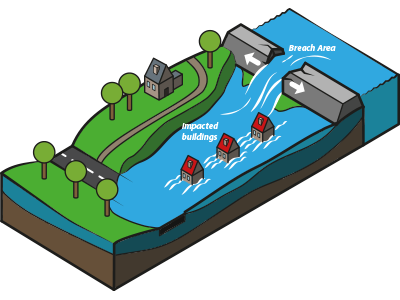Water Module getting started: Difference between revisions
Jump to navigation
Jump to search
No edit summary |
No edit summary |
||
| Line 22: | Line 22: | ||
*[[How to add sewer data (Water Overlay)|How to add sewer data]] | *[[How to add sewer data (Water Overlay)|How to add sewer data]] | ||
*[[How to generate a sewer|How to generate a sewer]] | *[[How to generate a sewer|How to generate a sewer]] | ||
*[[How to import sewer overflows|How to import sewer overflows]] | |||
*[[How to add Subsidence (Water Overlay)|How to add Subsidence]] | *[[How to add Subsidence (Water Overlay)|How to add Subsidence]] | ||
Revision as of 14:44, 14 June 2019
There are several approaches for getting started with the Water Module:
Tutorials
- If you want to start by practising with the basics of the Water Module in a theoretical setting, follow the Testbed Tutorial.
- If you want to start by practising with the basics of the Water Module in a real situation, follow the Rainfall Overlay Tutorial
How-to's and instructions for specific configurations
- If you prefer to get started with setting up the water model in a project area of your own choice, follow the steps in How to create a Basic Water Model.
- More examples of specific configurations of the water overlays are found on our 'How to' Instructions Page
- How to configure the Water Overlays
- How-to manually configure a Water Overlay
- How-to use a Water Overlay
- How to Trace water through project area
- How to add a breach with external area manually
- How to add a breach with input area manually
- How to import a breach with external area
- How to import a breach with input area
- How to add sewer data
- How to generate a sewer
- How to import sewer overflows
- How to add Subsidence
Test beds
- If you would like to get familiar with the different components of the Water Module first, check out the Water Module Testbed. This Testbed is available to you as a project in the Tygron Platform.
See also
Getting started with the Tygron Platform.





